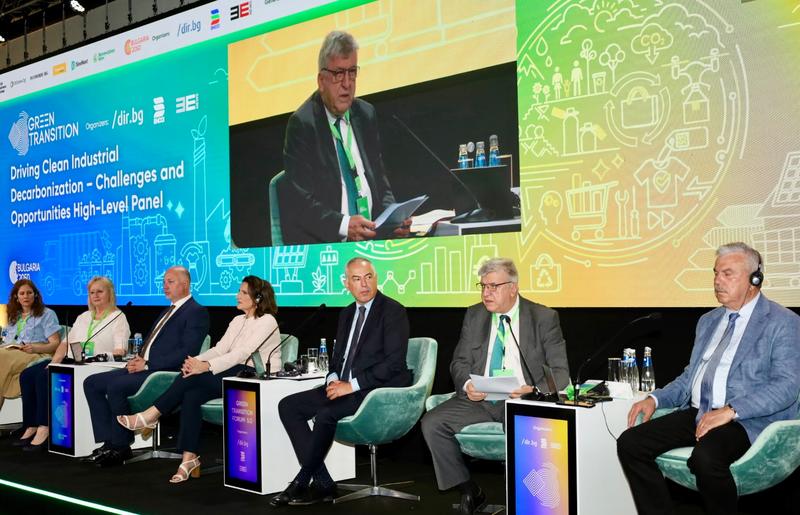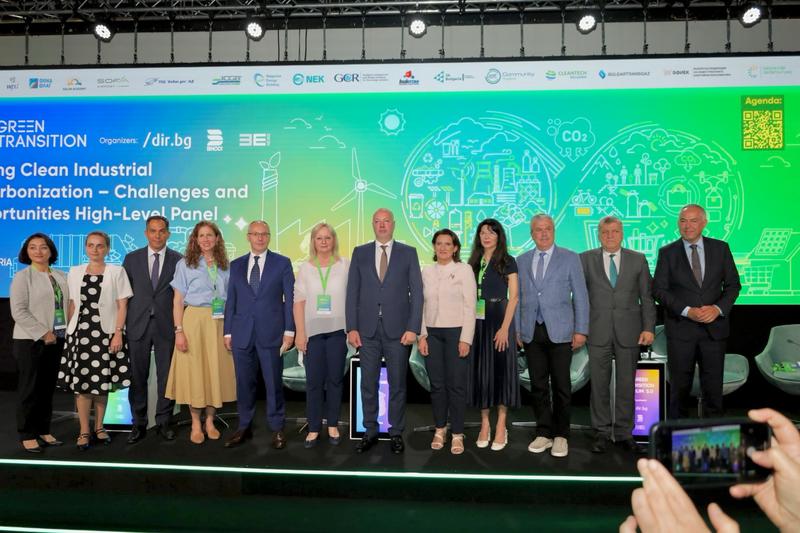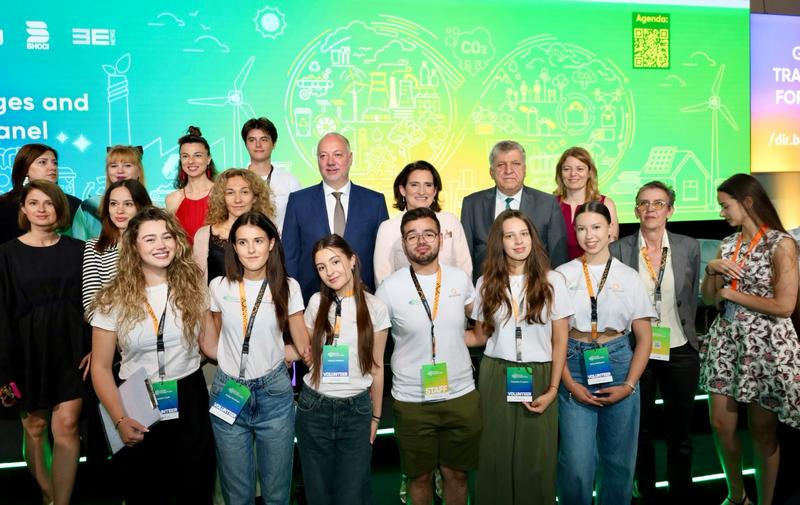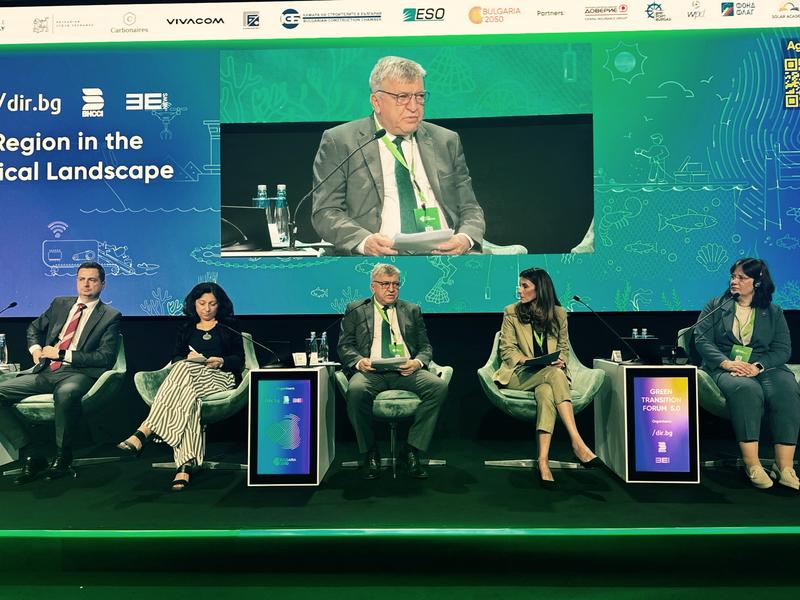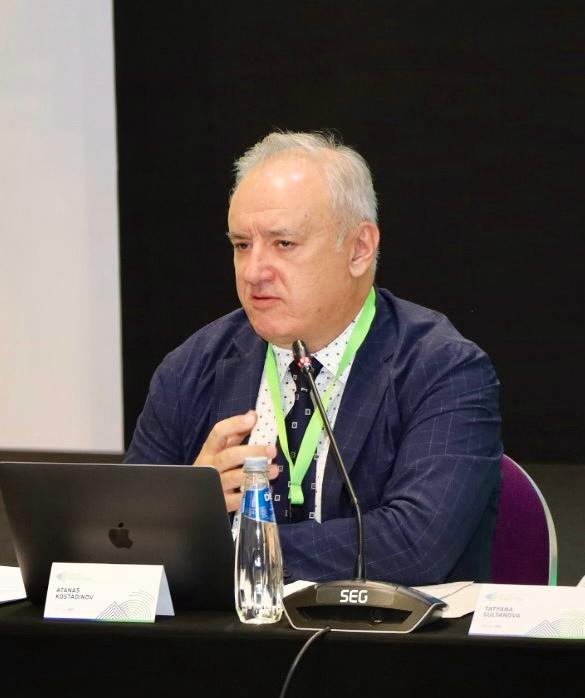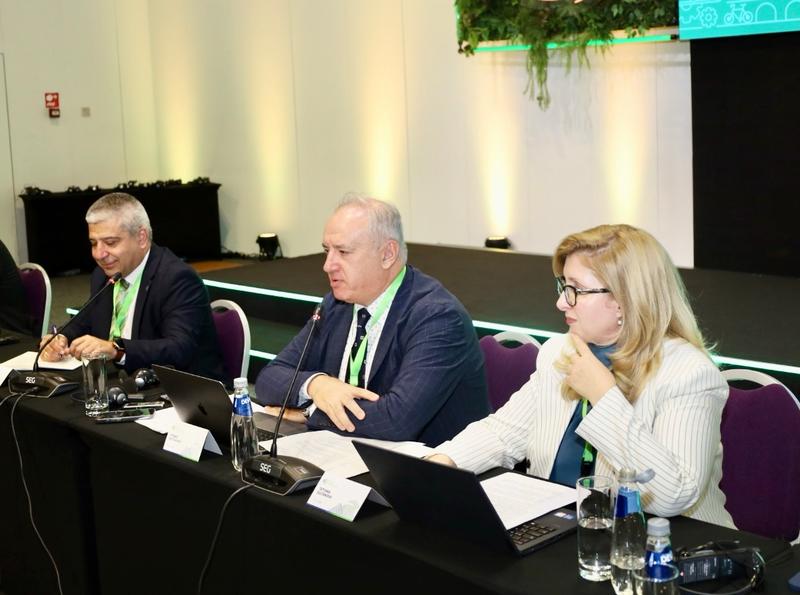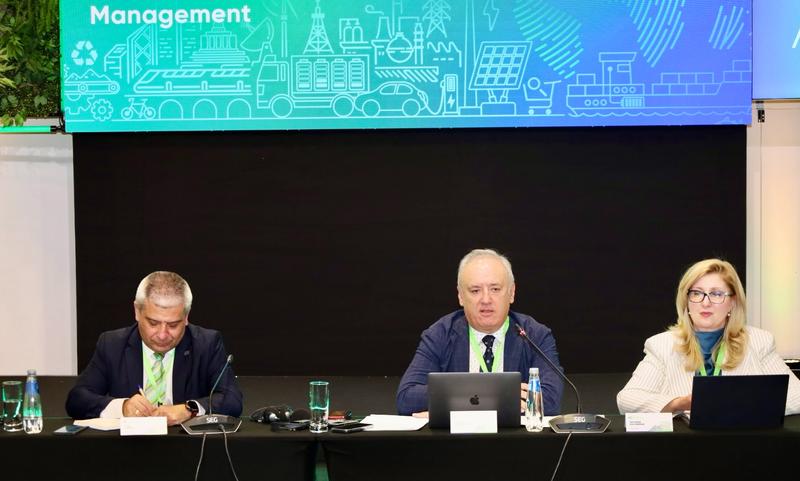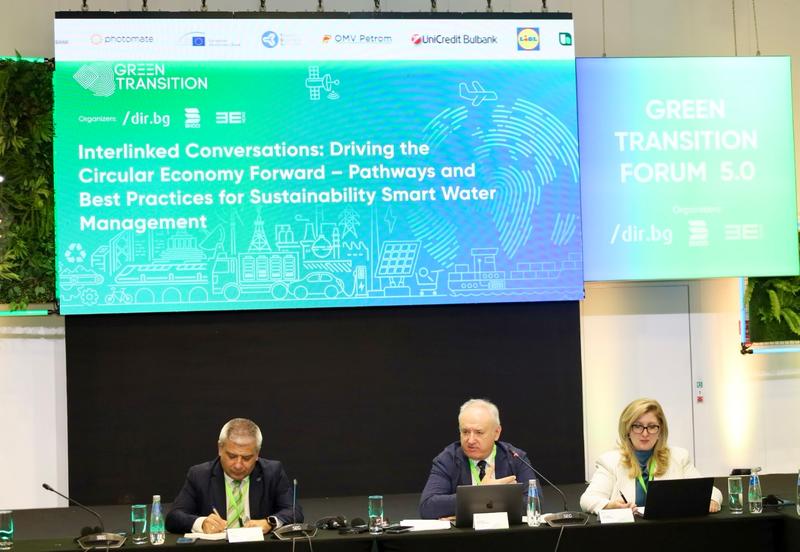Minister Manol Genov: Clean industry results in lower energy costs, new markets, and reduced risk of sanctions
19 Jun, 2025 | 12:45
- Joint efforts of the legislative and executive branches, scientific communities, civil society organizations and the entire potential of nations are needed to implement environmental policy.
Clean industry means lower long-term energy costs, reduced risks of regulatory sanctions and carbon taxes, digitalization and access to new markets and consumers. This was said by the Minister of Environment and Water Manol Genov in the discussion panel "Stimulating clean industrial decarbonization - challenges and opportunities" within the framework of the "Green Transition Forum" in Sofia.
"The green transition and decarbonization are an opportunity for a logical, cost-effective and sustainable new development model, from which we can benefit, protecting nature and our future. This is not a rejection of industries, but their sustainable development. The extractive industry in Bulgaria is of key importance not only for the economy, but also for providing raw materials for new green technologies. It is precisely through innovation, digitalization and responsible management that the sector can be a driver of the transformation towards a low-carbon and circular economy," added Minister Genov. And he warned that we should not allow the strengthening of our strategic autonomy in the production of key raw materials and products to lead to the replacement of one dependency with another.
Minister Manol Genov reminded that Bulgaria has repeatedly called for a balance between ambition and pragmatism. In the course of all negotiations so far, the Ministry of Environment and Water has insisted that the business and the industry should be provided with direction and a stable and predictable regulatory framework with at least a 10-year horizon, because this will allow them to be the engine of change themselves. “It is precisely the business that creates jobs and drives the economy when it is left to operate under reasonable regulation. The Bulgarian experience from the recent past shows that the state is not always the best manager, and the planned economy is far from a model that leads to long-term good results,” said Manol Genov. He added that the need to deal with climate change, pollution and biodiversity loss has led us down this path.
“We must not lose this focus and ignore the importance of environmental legislation, nor neglect and forget environmental procedures in our quest to simplify and facilitate the transition, so that we do not find ourselves in a similar position in a few years,” emphasized Minister Genov.
Within the framework of the panel “The Role of the Black Sea Region in the Global Water Geopolitical Landscape”, Minister Manol Genov stated that the maritime economy has significant potential for growth, which, however, is inextricably linked to the preservation and restoration of marine ecosystems. And he recalled that the European Union Strategy for the Black Sea Region, presented at the end of May, aims to address the challenges in the region through sustainable development, ecological transformation, and better regional connectivity.
“In Bulgaria, there is a visible improvement in the research on the quality of marine waters, taking into account the goals for sustainable development. There is a clear trend towards improvement in the chemical and physical indicators of surface waters. Regarding the quantitative indicators for groundwater, it is worrying because the reduction is significant,” said Deputy Minister of Environment and Water Atanas Kostadinov as a participant in the panel “Intelligent Water Management”, which was held yesterday within the framework of the forum.
He reminded that in order to ensure balanced water quantities, the ministries of environment and water, agriculture, energy and regional development determine the levels for each sector in coordination every month.
“One of the biggest challenges and mysteries of environmental policy is to turn it into a horizontal principle that “pervades” every human activity – especially where anthropogenic pressure is serious. This is actually the most difficult, so a joint effort between the legislative and executive branches, scientific communities, civil society organizations, and the entire potential of nations is needed,” said Kostadinov. According to him, although Bulgaria is working in accordance with the Water Framework Directive and is presenting its river basin and flood risk management plans on time and with a certain quality, it is still “lacking integrated, comprehensive, unified water management in accordance with the National Water Management Strategy.”
